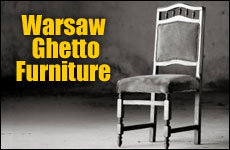 You Know More Hebrew Words Than You Think
You Know More Hebrew Words Than You Think


5 min read
How can we yearn to return to a place that we don't remember?
It's the beginning of the Three Weeks, the period we mourn for the destruction of the Temple in Jerusalem, and I'm thinking about what a friend recently said to me: "All the restrictions are so hard for me because I don't even know what I'm mourning for. We don't have the Beit Hamikdash -- so what? We have our shul. We have our community. I know I'm not supposed to feel this way, but I don't see any reason to be sad."
This is the deepest type of sadness; we don't even know that we are missing something.
A few years ago a young mother died, and for some reason I couldn't stop thinking about her two-year-old daughter. That daughter will not even remember her mother in a few years. She won't know that she is even missing her mother's love.
As Jews, we have lost the most essential connection in our lives, and we are like children who can't remember their Father's face. How can we yearn to return to a place that we don't remember?
When I first visited the new Yad Vashem, Israel's Holocaust museum, I walked through the maze of photographs and videos and felt the heaviness of families torn apart, of whole worlds disappearing without a whisper of protest. And then I saw it. It was a photograph of Jews moving into the Warsaw Ghetto. They were pulling wooden carts piled high with all of their furniture. There were chairs, tables, beds and suitcases. One teenage boy was facing the photographer, with a chair on his shoulders. His eyes bore into mine. He looked like so many people I knew. He could have been a brother or a cousin or a son.
No one understood that they'd be better off leaving their dining room chairs behind.
I couldn't stop staring at this photograph. I stood there, crying. Where did they think they were going? Why were they carrying so many heavy, useless pieces of furniture? Didn't they know they didn't need them anymore? No one understood that they'd be better off leaving their dining room chairs behind.
I felt like I was looking in a mirror. How much time do we spend buying and planning and carrying around all of our "furniture?" From the choice of a car to the decision of the material of our living room couches, we invest so much of our time making sure that we are as comfortable as possible. Comfort isn't necessarily bad; it becomes a problem when we make comfort the goal. Like the people in the photograph carrying their furniture to the ghetto, I don't realize that I'm not really going home, that I'm living in an illusion. And perhaps saddest of all, I don't see that as a nation we are cut off from the Source of life itself.
As I walked out of the museum into the glaring afternoon sun, I heard the voices of all the recordings echoing in my mind:
They took away my baby and killed him right in front of me….My own father fell during the march and I didn't stop to help him, I don't know why I didn't stop, I was so afraid….We were on the train without food, without water, without air, …..I have no one left now, no one… .I lay under mounds of dead bodies, I was only six-years-old and I climbed to the top and I saw the forest..
I drive home and try to forget the voices. Because I have to make dinner. And I have to feed the baby. And I have to finish my project. And pick up the clothes from the dry cleaner and make the dentist appointments. The voices begin to fade as my to-do list grows in my mind.
But that photograph won't go away. Those people are my family. Their losses are mine. I think of the recent terror attack in Jerusalem. What did I do after the first moment of horror upon hearing the news? I began to make phone calls. Where is my husband? Are my parents okay? Are my children safe? And when I ascertain that everyone is safe, I breathe a sigh of relief and continue the illusion that everything is okay. But it's not! People are hurt. Someone just lost a mother, a child, a spouse who was completely fine this morning. I cannot just go on with my routine. It cannot continue this way. I can't just say a prayer and go out to dinner.
But I do. And now my heart hurts as I allow myself to think about my fellow Jews. Because they are my family. And we are all lost together . During the Three Weeks and especially during the Nine Days, we decrease our physical enjoyment. We put down the furniture from our backs and stop trying to move towards the illusion of comfort. When we aren't distracted by material comforts, then maybe we can see that we are all in exile. We are disconnected from ourselves, from each other and from our Father.
And when we stop writing our ‘lists' we may begin to see that the Almighty is waiting for us to put down our suitcases and cry. He wants us to realize that even with our thriving shuls, wonderful schools and growing homes, we are only travelers. He wants us to want to come Home. And finally, He wants us to see that we are all holders of one, broken heart of our lost nation. Your loss hurts me. Your simchah brings me joy. And together, as a family, we will find our way home.
